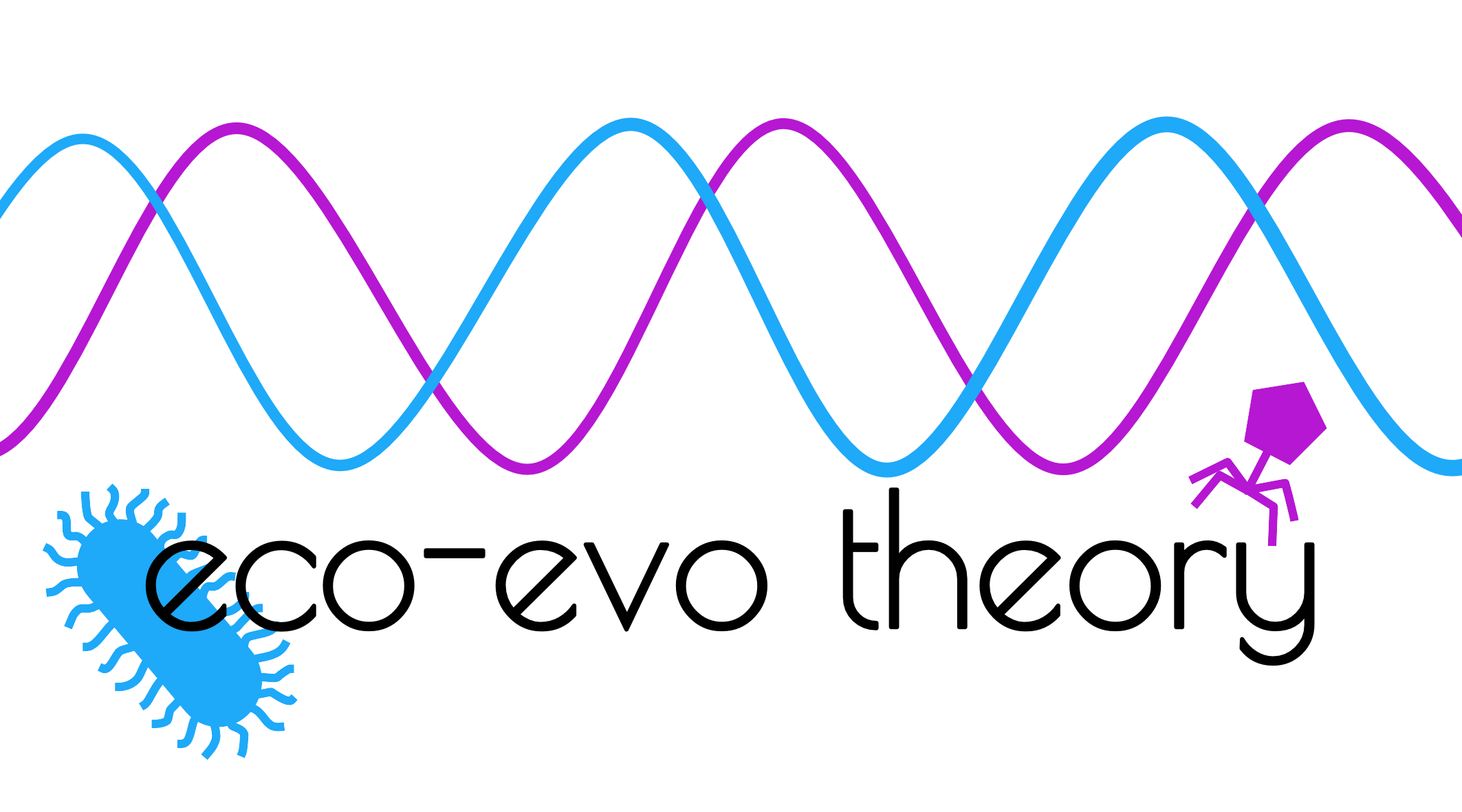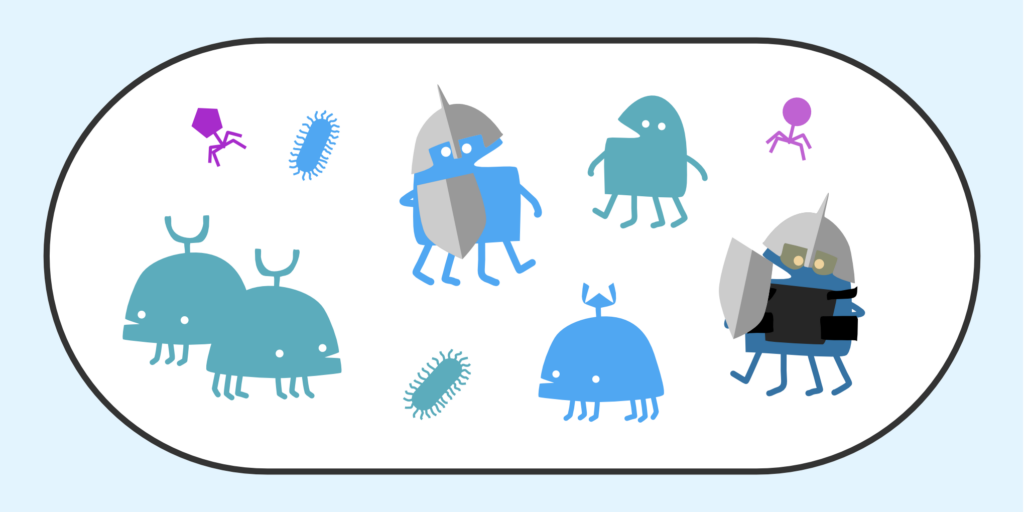Much of our understanding of host and parasite evolution is based on theoretical and empirical work on two-species systems. But in reality hosts and parasites exist in complex communities interacting with a wider range of other species. How do these interactions affect how hosts and parasites (co)evolve?
Key findings
- We have shown how microbes can evolve along the parasitism mutualism continuum to provide context dependent protection against other parasites, in a “the enemy of my enemy is my friend” scenario (see Ben’s article in The Conversation about this phenomenon).
- Working with Kayla King at the University of Oxford, we have shown both theoretically and experimentally (using the nematode C. elegans and two bacterial species) how the host can coevolve with a protective microbe to form a mutualistic relationship.
- Tolerance-conferring defensive symbionts always selects for higher parasite virulence and can cause the parasite to diversify into high and low virulence strains which specialise on different host subpopulations. We also show that the introduction of a tolerance-conferring defensive symbiont will always lead to a long-term reduction in host population size even if they are beneficial in the short-term.
- We show when hyperparasites select for higher or lower parasite virulence, and how this changes the disease burden for the host population. Crucially, we show that variation in the virulence and infectivity of hyperparasites, along with the probability of co-transmission, can lead to a previously unseen hysteresis effect, whereby small shifts in hyperparasite characteristics can lead to sudden shifts in parasite virulence. We also show that hyperparasites can induce diversification in parasite virulence, leading to the coexistence of high and low virulence strains.

